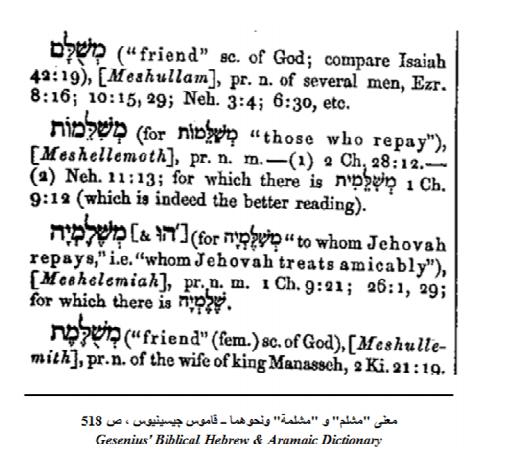Muslims believe that Muhammad is the last in this line of prophets, sent for all humankind with the message of Islam. All islamic content in one place: home q & a free downloads kids online bayan blog forums about islam is life just a game. About islam is life just a game go to. Al qur'an recitation. குர்ஆன் தமிழுரை mp3. Islamic Messages: Allah has created us. Allah has written in the Quran how we should live on earth. In this worldly life, we should follow the Sunnah of our Prophet Muhammad (PBUH). We all should have a.
- Messageall Islamic Content In One Placemat
- Messageall Islamic Content In One Placemats
- Messageall Islamic Content In One Place Crossword
- Messageall Islamic Content In One Places
We live in a world of social disparity where many people have more than ample to eat and drink clean water, access to good education, health facilities and most importantly freedom to bring change in their lives. On the contrary, there are people who die due to preventable diseases, hunger and impure water. They have no right to basic necessities of life and even worse that they have no opportunity to change their situation. These people are in constant need of assistance to improve their living conditions according to their desires. Every child wishes to go to school and have time for leisure activities. Every woman wishes to have safe birth delivery, live in a safe environment and have opportunities to empower herself and her society. Every man wishes for a normal life and to provide for himself and his family with adequate food, shelter, work opportunity, education and healthcare. These disadvantaged people look forward to any hope brought to them that could fulfil their wishes.
Islam arrived in Arabia in a similar condition of economic inequality and wealth discrepancy. The era before Islam is referred to as time of ignorance (jahiliyyah) because of the tribal warfare and rivalries which continued from one generation to another, lawlessness, neglect and mistreatment of the poor and vulnerable. One of the main goals of Islam was to condemn the economic imbalance and social inequality that prevailed in the Meccan society. The early chapters of Islam speak about the social prejudice and materialism that increased the gap between the rich and poor and affected the poor, destitute, widows and orphans. Addressing the social problems of poverty and inequality is central to the teachings of Islam as it is state in the Quran (chapter: 107, verse: 1, 2, 3) ’Have you seen the one who denies the judgement (to come), for that is the one who drives away the orphan and does not encourage the feeding of the poor’. To address this problem, Islam introduced the system of compulsory almsgiving (zakat) in return of a reward in life after death. It is stated in the Quran (chapter 57, verse 18) that, ‘Verily, those who give Sadaqat (i.e. Zakat and alms, etc.), men and women, and lend to Allah a goodly loan, it shall be increased manifold (to their credit), and theirs shall be an honourable good reward’.
Similarly, Islam has responded to the exploitation of orphans and the low status given to them in the Pre-Islamic Arabia. The Quran says in (chapter 4, verse 3) ‘And bring the orphans their riches, and do not exchange the wicked (you have) for the good (they own); and do not eat up their riches with your riches; surely that is a great outrage.’For the protection of poor and destitute, Islam prohibited the practice of lending money at high interest rate. In addition, charity was declared a right of every poor and needy. As Quran says (chapter 51 verse 19) that, ‘And in their properties is the right of the beggar and the destitute’. Mecca during Prophet Muhammad’s time was a prosperous commercial town but it mistreated vulnerable people who were tribeless, weak and slaves. The Quran therefore criticised the socio-economic inconsistencies and aimed at establishing an ethical and egalitarian social order. The Quran was not against the wealth accumulated by the Meccans and rather refers it to as Fadl Allah (bounty of God in chapter 62, verse 10)) and Khair (good in chapter 2, verse 105). The Quran insists that not all wealth belongs to the earner and that the needy have right it in that wealth. In addition, the Quran also encourages people to spend in the cause of Allah instead of investing it in usury (chapter 30, verse 39).
Messageall Islamic Content In One Placemat
The message of peace, equality, and justice made the Meccan people conscious of their responsibilities towards the most vulnerable people and gave hope to all for a fair society. The message is timeless and reminds its readers and believers through Quran and teachings as well as actions of Prophet Muhammad (Peace be upon him) to contribute for the welfare of humanity at large. The message of hope given by Islam is important not only for those who are in desperate need but for those also who have resources to facilitate as reward is guaranteed for them in the life after death. Muslim Aid as an international faith-based charity is a platform for those who wish to give hope for a better life to the neediest people world-wide and be a part of an institution based on the teachings of Islam.
By: Amal Imad Information & Public Affairs Department
According to many scholars in this field, the term Da'wah (call to Islam) applies to conveying the message of Islam to non-Muslims and inviting them to Allah. Non-practicing and lost Muslims need to be reeducated and motivated to become better Muslims; they already know Allah Almighty and have been given the concept of Tawheed (monotheism). Some objectives of Da'wah are as follows:
Messageall Islamic Content In One Placemats
